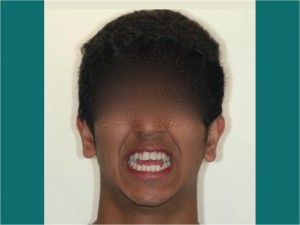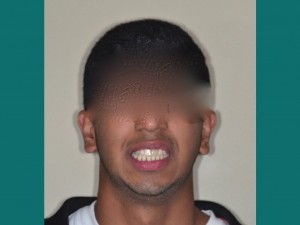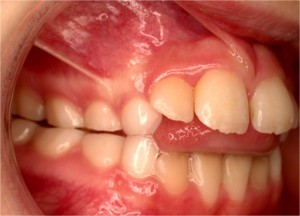A person who cannot bite or chew properly tends to avoid certain foods that are needed for a balanced diet, leading to poor nutrition. The foods that they eat are not chewed or crushed properly, thus eating becomes a chore rather than a pleasure. Braces can play a big part in correcting a speech impediment.
Furthermore, crooked teeth can be difficult to clean properly, which can lead to gum disease, inflammation, and infections. These problems manifest in the mouth as periodontal disease and tooth decay, leading to early loss of teeth.


The root of many speech problems is often incorrect swallowing. When a person lisps, or cannot articulate certain sounds is because the tongue, teeth, and lips simply cannot form the sounds correctly.
One of the most obvious symptoms of incorrect swallow is weak lip structure or flabby lip muscles. In this case, you will see lips that are constantly parted, a mouth-breathing habit, or sore and chapped lips. Anyone who purses or tightens their lips or exhibits a facial grimace as they swallow may be showing signs of an incorrect swallow.

It is possible for this incorrect swallow pattern to self-correct up until the time upper front teeth erupt, which is usually around age 7 or 8. Further improvement, without intervention, can rarely be expected past this point. Incorrect swallow will then likely persist throughout their adult life, with all the accompanying problems previously listed. With all the dental problems present, the person may lose their teeth prematurely, leading to the need for dentures early in their adulthood. The incorrect swallowing will also affect the person’s ability to keep the dentures stable in their mouth, causing frequent visits to the dentist without finding relief.
Since this incorrect swallow happens many times a day, the repeated action quickly becomes a long-standing habit. As we all know, habits are very hard to change, and this action that happens 2000 times or more a day is no exception. Correction through therapy can take place in “middle-aged” children from 9 to 12, as well as teenagers. Adults can be retrained as well. This is done through the technique called Myo-functional Therapy.
We’d be happy to consult with you if have any of the above issues – call us and make an appointment in Surrey and Vancouver for a complimentary consultation.

Hello! I’m Dr. Kevin Lee, a certified orthodontic specialist at PacificWest Dental Group, proudly serving the vibrant communities of Vancouver and Surrey. My journey into orthodontics began back in high school. As a teenager wearing braces, I became fascinated by the intricate blend of art, engineering, and biology that defines this field. This early experience ignited a passion that has guided me throughout my career.
I pursued my academic journey at the University of British Columbia (UBC), where I earned a Bachelor of Science in Biochemistry in 2006, followed by a Doctor of Dental Medicine in 2011. After a year-long residency at Montefiore Medical Center in New York, I returned to UBC to complete a combined Master of Science in Craniofacial Biology and a Diploma in Orthodontics in 2015. That same year, I achieved certification from both the Royal College of Dentists of Canada and the American Board of Orthodontics.
With over a decade of clinical experience, I remain deeply committed to staying at the forefront of orthodontic advancements. At PacificWest Dental Group, we prioritize personalized treatment plans tailored to each patient’s unique needs, ensuring comfort and care every step of the way. Our goal is to help you achieve the smile you’ve always dreamed of in a welcoming and supportive environment.
Outside the clinic, I enjoy engaging with our community and staying active. Whether it’s through local events or outdoor activities, I believe in building strong relationships both inside and outside the office. I look forward to meeting you and working together to create a beautiful, confident smile.
Services we provide:
-Invisalign
-Braces
-Lingual Braces
-Digital treatment planning
-TMJ and headpain treatment
-Laser Therapy
-Sleep Apnea Oral Appliance
-Dysport Cosmetic Injectables









